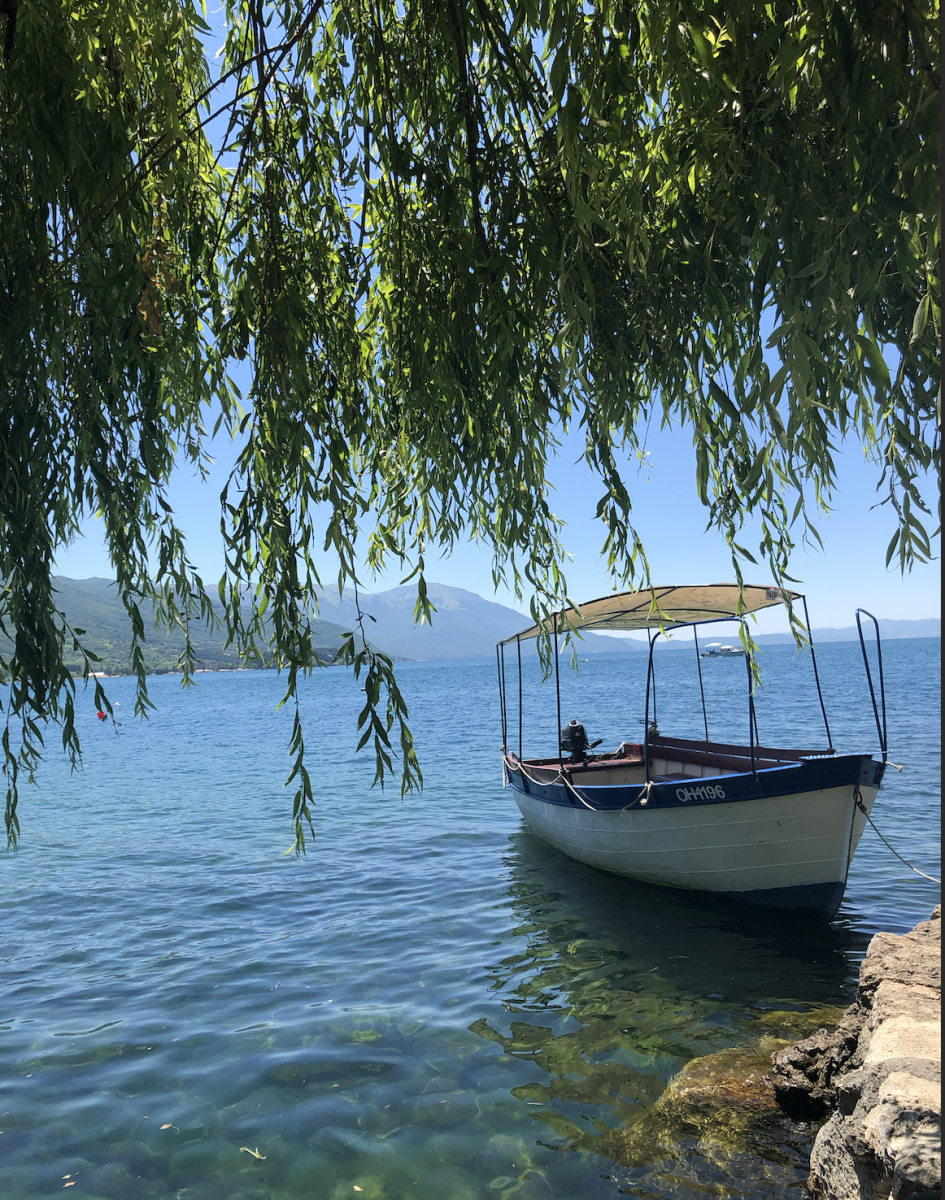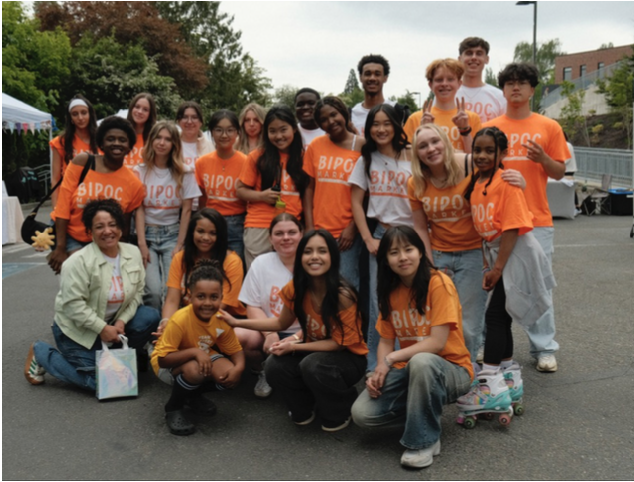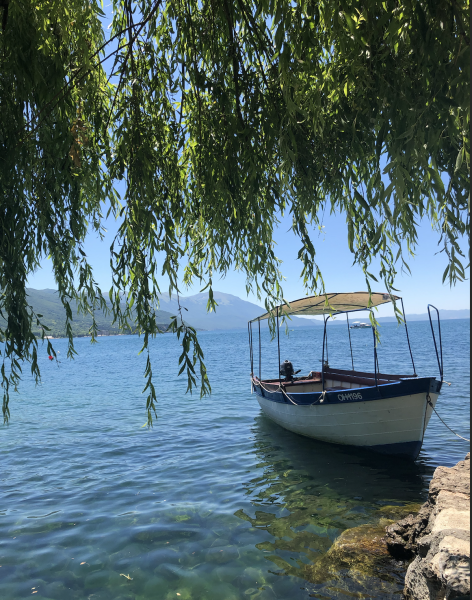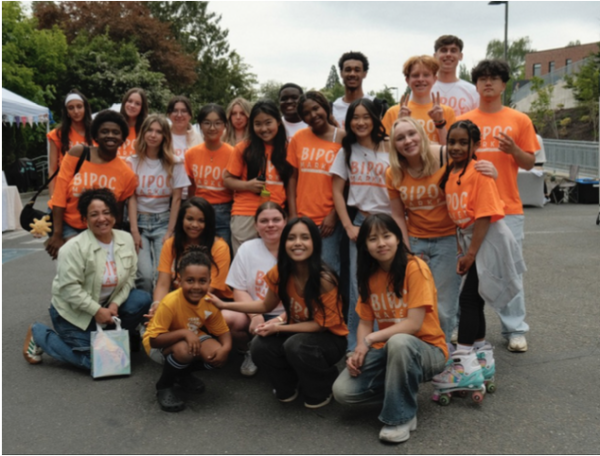La Politique Américaine
Inkwell’s news editor reports on the French reaction to Trump’s immigration ban
photo courtesy of Britnie Casillas
February 10, 2017
The French government has had a historically volatile relationship with its Islamic population, specifically immigrants from Middle Eastern and other Muslim countries. A French ban on covering faces was passed in 2010, where the French Senate banned “face-covering headgear,” including niqabs and burqas, in public places, streets, museums, public transport, and shops. A law passed in 2004 prohibits students in France from wearing religious items in public schools, including turbans and Islamic headscarves.
When both of these laws were passed, the French government faced an angry outcry from its Islamic citizens and many foreign countries for passing “racist” laws. When I came to France, I had a preconceived notion they would not blink an eye at whatever Donald Trump had in store for the United States. I believed what I had been taught: that internal racism was present in France, and the media and citizens would either not care, or even agree with Donald Trump’s promises of a Muslim ban. These notions quickly dissolved after I saw the French reaction to Trump’s first week in office.
On Friday, January 27, Donald Trump signed an executive order halting the entrance of citizens from the seven Middle Eastern countries of Libya, Iran, Iraq, Somalia, Sudan, Syria, and Yemen to the United States. Immediately after the news broke of his order, it was broadcasted on every media outlet in France. As a country given the stereotype of having racist citizens, and themselves in the middle of an election with candidates such as Marine Le Pen mirroring the rhetoric of Donald Trump, the current French President and populous reaction to the ban was surprising to me.
The President of France, François Hollande, was unfettered in expressing his views on Trump’s ban. “We must conduct firm dialogue with the new American administration which has shown it has its own approach to the problems we all face,” he said in response to the ban. President Hollande was affronted by the suspension of refugees entering the United States: “When he [Donald Trump] refuses the arrival of refugees, while Europe has done its duty, we have to respond.”
At a summit for EU leaders in Malta, President Hollande expressed his opinion regarding France and Europe’s relationship with the current President of the United States by saying Europe had no future in a relationship with the United States “if this future isn’t defined in common.” In President Hollande’s first phone call with President Trump, he warned him of the “economic and political consequences of a protectionist approach,” and urged Trump to reconsider his ban as the “acceptance of refugees” must be a respected principal.
For the French media, it was a frenzy. I learned of the executive order because it was the topic of the nightly news in France when I returned from school. Numerous news outlets in France expressed their shock and discontent over the ban, and they broadcasted the live protests from airports in the United States for the French to watch. Interviews of Trump’s administration were shown day and night, and certain French media outlets criticized his administration’s comments. For multiple days after the order, all of Donald Trump’s appearances and speeches were broadcasted in France. They had live videos and reporters documenting the airport protests, and many French political scientists debated the effects, disadvantages, and advantages of Trump’s ban for the French population to watch.
One topic the French media hit heavily is the fear of similar actions taking place after France has their election in May. The French liberal media compared Trump’s Muslim ban to the speeches of Marine Le Pen, the nationalist candidate for the French election. On January 30, the far right National Front Party of France, the party backing Marine Le Pen, stated they would consider enacting a similar ban if Le Pen is elected. Steeve Briois, who is a member of Le Pen’s campaign team stated, “Why not…We not living in the world of Care Bears anymore. We are in a horrible world,” when asked if he supported the Muslim ban. He went on to say, “…from time to time we must take authoritarian measures, even if they shock.”
Briois defended Trump’s actions by saying: “…the United States is also a target for jihadists, so if Trump wants to protect it by forbidding the arrival of these people from these countries he is free to do that.” Marine Le Pen has not explicitly supported Trump’s actions, but she defended him after the ban was implemented, saying people were only angry because Trump is “sticking to his promises.”
Students, teachers, and my host family were in a state of shock after hearing of the Muslim ban. After it was implemented, my family spoke about it over every meal. They debated its impact, the protests, and their fears about France acting similarly in the future. Every new person I met for the next week asked me a similar question when they discovered I was American: “What is going on in your country?” Students at school asked me if I agreed with the ban, how I felt about Trump, and tried to understand how the order was allowed to pass.
Many students expressed their discontent and worry over what the ban means for Europe and refugees seeking asylum. My host sister, who wants to be a diplomat and is coming to America for seven weeks in April, struggled to come to terms with the ban. When I asked her what she thought of it she said: “It is crazy, because it will not solve the problem of terrorism, because they can get to the U.S. through the internet. For me, it is like the second world war because Muslims are starting to be treated like the Jewish. I think he [Donald Trump] has made a big mistake against Muslims in America.”










